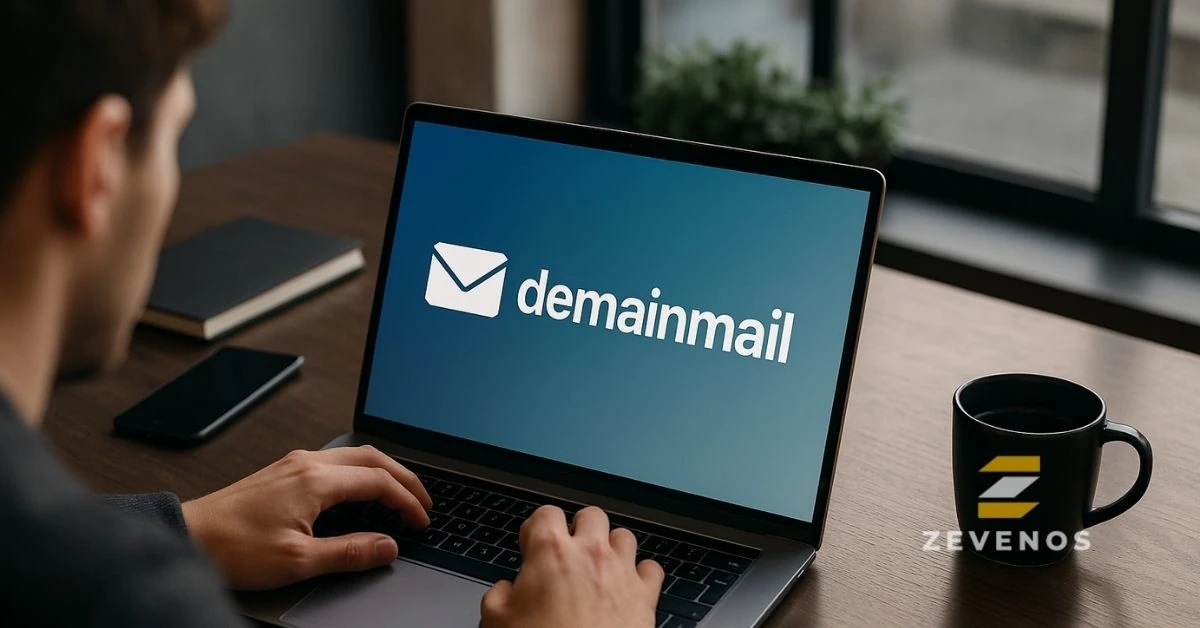Demainmail: Disposable Email or Secure Mail Platform?
Key Takeaways
The demainmail domain is widely treated as a temporary inbox provider, raising concerns about long-term use.
Some reviews market “DemainMail” as a modern, secure, AI-driven email platform.
Disposable addresses can protect privacy but come with risks like blocked sign-ups and short inbox life.
Businesses and professionals are cautious due to trust and compliance issues.
Alternatives such as ProtonMail, Tutanota, TempMail, and GuerrillaMail may be safer depending on your intent.
What Is Demainmail?
When you search for “demainmail,” you’ll notice two very different narratives.
On one hand, demainmail.com is flagged by multiple verification services as a disposable email domain. This puts it in the same category as TempMail or GuerrillaMail—quick, one-time inboxes designed for anonymity and spam avoidance.
On the other hand, some tech blogs describe “DemainMail” as a minimalist, AI-powered secure email service promising encrypted messages and smarter inbox management.
This dual identity has caused confusion. For everyday users, demainmail primarily functions as a throwaway inbox provider. But its branding suggests ambitions to compete with privacy-first email providers.
The Evolution of Disposable Email
To understand demainmail, it helps to look at the history of disposable email.
Back in the early 2000s, spam became a nightmare. Users needed a way to sign up for online services without exposing their real inboxes. Services like Mailinator and 10MinuteMail appeared, offering addresses that expired quickly.
These tools became popular with:
Developers testing sign-up flows.
Privacy enthusiasts who didn’t want their data harvested.
Casual users avoiding spam when downloading files or registering for free trials.
Over time, businesses started blocking disposable addresses. Why? Because accounts created with them often disappeared, skewing analytics, reducing trust, and enabling fraud.
Demainmail fits squarely into this tradition, though the “platform” narrative adds an unusual twist.
How Demainmail Works
Temporary Inbox Functionality
When used as a disposable mailbox, it operates like other throwaway services:
An email address is generated instantly.
Messages arrive in a public or semi-public inbox.
Inboxes last minutes to hours before being deleted.
Once expired, users lose access permanently.
This makes demainmail convenient for quick sign-ups or spam-heavy sites—but risky for anything important.
Platform Features (as Marketed)
In contrast, articles promoting “DemainMail” describe it as a full-featured email platform, offering:
AI-driven inbox organization.
Encryption for private communication.
Minimalist user interface for productivity.
Cross-device sync for accessibility.
Independent verification of these features is still lacking, leaving many skeptical.
Who Typically Uses It?
Developers needing temporary accounts.
Marketers testing campaigns.
Privacy-conscious users seeking anonymity.
Experimenters curious about new platforms.
Benefits and Advantages
Advantages of Disposable Email
Instant access: No registration needed.
Spam protection: Keeps your personal inbox clean.
Anonymity: Protects your identity on questionable websites.
Advantages of a Secure Platform (If Fully Realized)
AI sorting: Helps cut through inbox clutter.
Encryption: Protects sensitive communications.
Minimalist workflow: Appeals to professionals seeking focus.
Why Privacy Still Matters
Privacy is a growing concern. Disposable inboxes provide quick anonymity, while secure providers focus on long-term data protection. Both approaches have their place.
Risks and Limitations
Blocked by Websites
Demainmail is flagged with a fraud score of 91, meaning most reputable sites automatically block it during registration.
Short-Lived Access
Inboxes may vanish within hours. Accidentally using such an address for important accounts means losing access forever.
Trust Concerns
The mixed identity—disposable domain vs secure platform—creates uncertainty. Users don’t know whether they’re getting a trusted service or a risky one.
Transparency Gaps
Disposable providers rarely publish clear policies on data retention or security, leaving privacy-minded users uneasy.
Demainmail vs Alternatives
Permanent Secure Email Providers
ProtonMail: Switzerland-based, offers end-to-end encryption and strong legal protections.
Tutanota: German provider with encrypted calendars and notes.
Disposable Email Providers
TempMail: Easy-to-use, widely recognized disposable service.
GuerrillaMail: Offers longer-lasting inboxes and flexibility.
Choosing the Right Tool
One-time sign-up on an untrusted site? → Use TempMail or GuerrillaMail.
Long-term privacy and security? → Use ProtonMail or Tutanota.
Demainmail curiosity? → Recognize its primary role as disposable.
Real-World Use Cases
Developer Testing
A software engineer creating an app might need hundreds of test accounts. Disposable emails make this simple, though none of those accounts will last.
Marketing Funnels
Growth marketers often test campaigns with temporary addresses. While this works for volume, results are skewed since disposable accounts never convert.
Everyday Privacy
An individual registers on a free site using a throwaway inbox. This keeps spam out of their personal email, but recovery is impossible if they want to keep the account later.
Business Productivity (Hypothetical Platform)
If the secure platform version is real, AI-driven sorting and encryption could help professionals. For now, established providers are safer.
Legal and Compliance Considerations
GDPR
European law discourages disposable emails in professional contexts because accountability is impossible.
Anti-Spam Laws
Using temporary domains to bypass restrictions can create legal issues, especially in marketing.
IT Policies
Most businesses block disposable domains to protect systems from fraud and unauthorized access.
This makes demainmail unsuitable for business-critical communication.
Future Outlook
Can demainmail transition from disposable domain to trusted secure platform? To achieve this, it would need to:
Separate disposable services from the secure brand.
Publish transparency reports on data handling.
Offer independent audits of security claims.
Clarify inbox permanence and retention policies.
Without these steps, it risks being remembered only as a disposable tool.
Should You Use It?
For Quick Anonymity
Yes—fine for short-term privacy.
For Long-Term Communication
Not recommended. Established secure providers are safer.
Quick Checklist
Need permanent access? → Choose ProtonMail or Tutanota.
Need instant anonymity? → Use TempMail or GuerrillaMail.
Considering Demainmail? → Treat it primarily as disposable.
Frequently Asked Questions (FAQs)
What is demainmail?
It’s widely recognized as a disposable email domain. Some marketing materials promote “DemainMail” as a secure platform, though this isn’t well verified.
Is it safe?
Safe for short-term use, but unreliable for permanent communication. Many sites block it.
Why is it blocked?
Because it carries a fraud score of 91, most platforms reject it to prevent fake registrations and spam.
How long does an inbox last?
Typically minutes to hours. No evidence supports permanent storage.
What are the best alternatives?
TempMail or GuerrillaMail for disposable needs; ProtonMail or Tutanota for secure, long-term email.
Can it be used for business?
No. Disposable domains reduce credibility and create compliance risks.
Final Thoughts
Demainmail is a case study in dual identity. As of now, it functions primarily as a throwaway domain. While branding suggests it might evolve into a secure, AI-powered service, proof remains scarce.
For now, treat demainmail as temporary only. If you need privacy with permanence, rely on trusted providers like ProtonMail or Tutanota.
👉 Your email is more than just messages—it’s your digital passport. Choose a service that matches your needs for privacy, security, and reliability.







